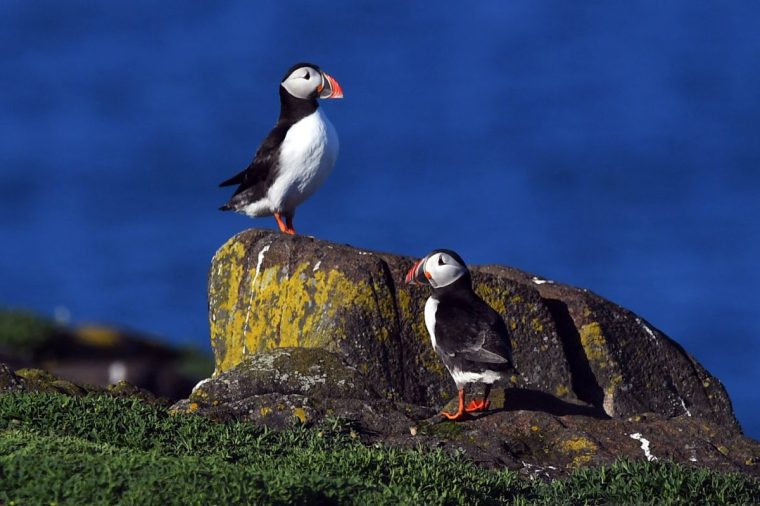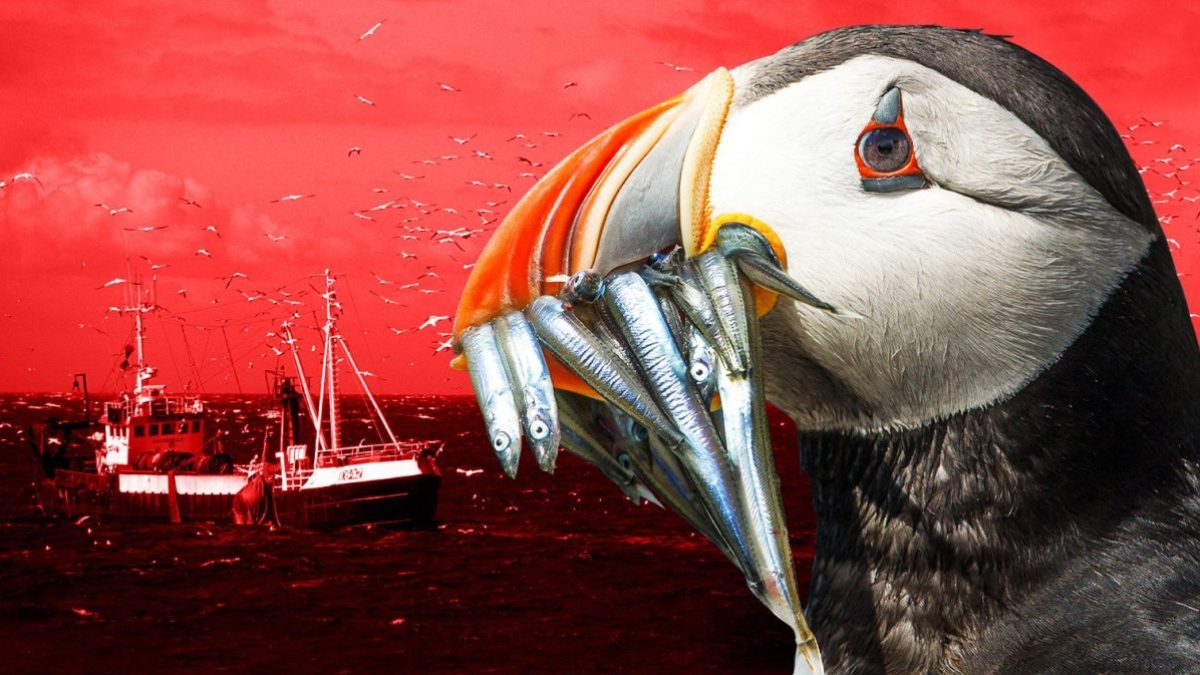Court rules Britain does not have to reverse its ban on sand-eel fishing which protects puffins
The UK does not have to reverse its post-Brexit ban on sand-eel fishing designed to protect puffin populations, an international court has ruled after the EU attempted to overturn the policy.
The Permanent Court of Arbitration ruled on Friday that the UK is not legally obliged to reverse bans in English or Scottish waters, despite the EU arguing that the policy violated the terms of the two sides’ overarching Brexit trade deal.
It has been interpreted as a “great Brexit win” for the Government at a highly sensitive time. Westminster and Brussels are locked in tense negotiations over fishing rights, trade, and a defence deal ahead of a landmark UK-EU Brexit “reset” summit on 19 May.
Although the court ruled against the UK on how it arrived at the March 2024 decision, there is no legal obligation for the Government to overturn the ban.
The Government said ministers would look to comply with the ruling “in good faith” but that the UK remained “committed to protecting our seabirds and the wider marine environment” in accordance with the Brexit Trade and Cooperation Agreement (TCA).
Joel Reland, senior researcher at think tank UK In A Changing Europe, said this suggests that the Government may now have a “conversation with the EU” on how to proceed.
 Puffins are most commonly seen in the UK along the coasts of Scotland, northern England, south-west England, and Wales, especially on islands and cliffs (Photo: Andy Buchanan/AFP)
Puffins are most commonly seen in the UK along the coasts of Scotland, northern England, south-west England, and Wales, especially on islands and cliffs (Photo: Andy Buchanan/AFP)
This could involve bringing the row into the delicate negotiations on EU access to UK waters, with the current deal on fishing rights due to expire next year.
EU coastal countries such France and Denmark are understood to have insisted that the UK agree on a long-term fishing deal if it wants to unlock other areas of co-operation, such as the security and defence pact Starmer wants to sign at the May summit, and a deal on cross-border food trade.
Mr Reland said after the court ruling: “It doesn’t sound like they [the UK] will overturn the ban, but it might mean conceding some ground. That could mean allowing limited catch of sand eels or tying it into the wider negotiation on fishing rights.
“It sounds like there is quite a lot of horse-trading to be done, and the timing is quite convenient [ahead of the UK-EU summit].”
‘Important victory for the UK’
The Conservative Environment Network (CEN) urged the Government not to make concessions on the ban as part of Brexit reset negotiations.
John Flesher, deputy director of CEN, said: “This is a great Brexit win for the UK and vindicates the last Conservative Government’s efforts to protect our seas and the marine life they hold. Banning sand-eel fishing was never about penalising the EU; it was about supporting our threatened native species like puffins.
“It is excellent news that the tribunal has recognised this.
“This win for nature would not have been possible if the UK were a member of the European Union, and Brexit has the potential to do so much more good for our environment.”
CEN MP Andrew Griffith, Shadow Secretary of State for Business and Trade, said: “This is an important victory for the UK and protects our right to decide what is best for British waters and our native species.”
A UK Government spokesman said: “The ruling does not mean the UK is legally obliged to reverse the closure of English waters, and the decision to close Scottish waters was fully upheld.
“We remain committed to protecting our seabirds and the wider marine environment in accordance with our commitments to the TCA and other international agreements.
“We will continue to act in the national interest as we work towards a strong and lasting partnership with our European neighbours.”
The Permanent Court of Arbitration, based in The Hague in the Netherlands, is a intergovernmental organisation with 124 members. It facilitates dispute resolution between states.
A lifeline for puffins
Anne McCall, director of RSPB Scotland, said: “Today’s decision is a significant step for Scotland’s globally important seabirds. With more than 70 per cent of Scottish seabird populations in decline it’s vital we do everything we can to bring about their recovery.
“The sand-eel fishery closure in Scottish waters represents a major lifeline for many species, including our much-loved puffins and kittiwakes.
“Plentiful food is a key part of supporting seabird recovery, as is making sure there are safe places for seabirds to breed and rear their young and preventing unnecessary adult mortality.”
